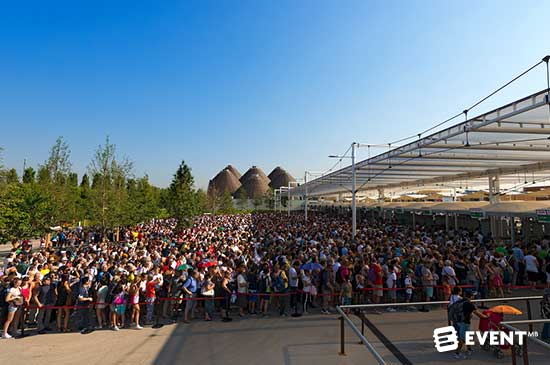Skift Take
Marketing isn’t just something that happens organically. There’s a lot of work involved and many moving pieces. It all starts with a strong marketing plan. But how do you create one and what is it comprised of? This is what you need to know to get started.
Marketing has become more complicated lately. Attendees are finding greater ways to avoid event marketing and professing that they don’t want to be sold. Good marketing requires finesse and the ability to be of value long before you require something like an event ticket.
So how do you walk that fine line?
Do you achieve marketing greatness through random actions on social media? Not if you plan on meeting your goal. If you’re marketing your event, you need a great marketing plan that ensures all of your actions tie into your ultimate business goal. Here are the steps you need to know to get there:
- Know where you want to go. What’s your end business goal?
- Make note of where you are starting from. You won’t know how successful you are or if you’ve fallen short if you don’t analyze where you are before marketing plan implementation.
- Figure out who your ideal attendee is, what they’re like, what they need, and where they are.
- Put together a plan on how you will reach your ideal attendee through digital marketing and implement it. Cyber stalking is not a plan.
- Analyze the effectiveness of your results. What could’ve been done differently? At the same time you are analyzing you should also be connecting to your attendees as they return home.
1. What Is Your End Marketing Goal for the Event?
J.R.R. Tolkien wrote “All who wander are not lost” and that’s true. If you don’t have a selected destination, you can’t really say you’re lost. However ‘wandering’ is not a good idea for a marketing plan. Instead, you want to find the most direct route to what you want to accomplish. You can’t do that without establishing a goal.
Goals should always be SMART:
- Specific
- Measurable
- Achievable
- Results-focused
- Time-bound
Some ideas may include:
- Increasing attendee numbers by 5% over last year.
- Increasing course sales at the event by 15% on the first day of the conference.
- Improving brand recognition by 10% by end of conference.
- Improving Net Promoter Score of the client.
2. Note Where You’re Starting From
Getting back to our Tolkien quote, you may now know where you’re going but if you don’t have a point from which you’re starting you don’t know how long it’ll take to get there or if you’ve arrived. Let’s imagine someone told you a destination is two hours away. That seems very doable. But that easy idea becomes more complicated if you’re starting from somewhere farther away. Now your ‘two-hour’ prediction has become five.
With events, it’s important to have solid analytics on what you’ve achieved in the past. Without knowing how many attendees you had last year, how can you achieve your goal to increase the number by 5%? Instead, gather this year’s goal and the numbers associated with last year’s event and you have your starting point. Now you know what kind of work is involved in getting to your goal.
A quick side note about budgeting since a budget should be highly correlated with your event goal: Make sure you have a budget for marketing. Yes, many aspects of marketing are free like social media and writing an email. However, there are time costs associated with each activity. Plus, even social media requires an investment these days with targeted ads. You may want to consider a drip marketing campaign or even a content creator, storyteller, or a marketing designer. More about the specifics later but for now, it’s important to include a marketing budget.
3. Know Your Ideal Attendee
Effective marketing is highly personalized these days and it’s impossible to personalize an approach if you don’t know your audience. Create attendee personas of the type of person who comes to your events by analyzing your past attendee data. You can create more than one persona, but if you have too many that suggests not really understanding your core audience.
Once you name this persona, begin sketching out the detail of that person’s life such as:
- Age
- Gender
- Salary
- Education level
- Occupation
- Interests
- Challenges
- Connections
A completed attendee persona might look like this:
Jen is a 44-year-old female, a working mom of two elementary-school kids. Her household income is around $50,000 and she has a college degree and works in an office in an administrative function. She loves spending time with family but is looking forward to expanding her career as her children get older and need her less. She often finds she doesn’t have enough time to get her to-do list accomplished. She’s feeling sandwiched between family and work obligations and wants a better work/life balance. She comes to our productivity seminars because she’s tired of feeling overwhelmed. She’s on Facebook and Pinterest.
This may seem like a lot of work fleshing out these details but they help you and your team understand what Jen’s pressure points are and what appeals to her. Stress is a major concern for her. If your event can help with stress, either by showing her productive ways for reducing it or by helping her prioritize something that will give her more time in her day, she may just come to your event.
On the other hand, if your marketing promotion is all about coming to your event for the party, Jen won’t likely be there.
Once you know who your attendees are, you can easily figure out where they are online, using social media demographics. For instance, a large percentage of Instagram users are under 35. If you’re marketing an event to Baby Boomers, unless it’s a photography event, you can probably avoid Instagram if you have limited time and resources.
Today’s uber-personalized marketing is a lot like fishing. You need to be fishing where the type of fish you want to catch are and you need to use the kind of bait that will attract them. If you want to catch a shark, you’re likely not going to fish in a creek with bread. If you want ‘Jen’ to come to your event you need to be on Facebook, using targeted marketing so she’ll see you and become aware of your event. You also need to use language that will appeal to her, like ‘learn to conquer your stress’ and ‘get more done in less time.’
4. Plan Your Route to Your Event Goal
Now that you know where you’re starting from, where you’re going, and who you’re trying to reach, you need to figure out all the details. First, marketing should never occur just a few days before registration opens and close when everyone checks in. Marketing your event should be an ongoing activity for you.
An event brings together a community of like-minded or like-interested people. If you don’t capitalize on that, you’re missing an opportunity. So let’s talk about the elements of a solid marketing plan. You’ll want to include the following based on the preferences of your ideal attendee:
- Email marketing. This begins with email invites to your event but can be so much more than that. You can use email to send e-newsletters keeping everyone in touch on event dates throughout the year such as calls for speakers, registration openings, etc. Email can also be used for drip marketing. One brilliant example of that is creating a drip marketing campaign for those who have signed up to attend. Send them information about the event and the host city every week or so. Not only will they get excited, but they’ll also be likely to talk about it on social media.
- Crank up the content machine. Featuring worthwhile content (according to your ideal attendee) on your website allows you to reach interested people when you’re not at the office. Your content can be feeding people and the search engines even when you’re not working. You can use your content in social media postings, as part of your newsletter, and in your email marketing. Plus, your content gives your audience something to share with their tribe, making them look like in-the-know experts.
- Social media. In addition to that awesome content you’ve created and posted to social media, you also want to have conversations with people on these platforms and listen for conversations about your event. Join them in a natural way. Make helpful suggestions when you can and look to be of value. Do not hard sell anyone.
- Public relations. What press releases need to be written and sent out?
- Storytelling. Help your attendees share their stories. Tell yours and don’t forget your sponsors. Storytelling is highly effective in motivating people to perform an action, like buying a ticket.
- Influencer marketing. This is the part where you reach out to influencers in your industry for endorsements, blog post testimonials, or affinity programs where you give them a discount and a limited number of tickets. They will then get a commission or a portion of the ticket sales that they sell.
- Referral marketing and repeat attendees. You can also give discount codes to people who refer friends or discounted tickets for people who have attended in the past. This is your strongest base of attendees so playing up to their loyalty is a good move.
A complete marketing plan will also include tactics while you’re at the event as well as community-solidifying activities afterward. If you keep your audience interested throughout the year, you’ll never have to ramp up again. Plus, constant interest means more people watching for registration to open and a larger number of early sign-ups.
Whatever marketing tactics you use, you want to personalize them to your audience. Use their names in communications and mention past activities or guest history to make them feel like they will be missed if they’re not in attendance.
Your marketing campaign will detail exactly how you plan on engaging in all of the types of marketing above. Remember, your audience is your guide. Do more of what they respond to and less of what they don’t. Marketing is not an exact equation where when you add this and this, you always get that. It requires trial and error, which brings us to…
5. Analyze the Effectiveness of Your Results
Only marketing plans are perfect. Once they leave the sheet of paper or screen and are implemented, that’s when the analysis must be performed to see what can be improved upon.
But don’t leave analysis as part of the recap after the event. The effectiveness of marketing is predicated on your ability to adjust things as you’re going. If you wait until the end, you don’t have the ability to change something that may have helped you reach your goal. Things move too quickly to leave it all to a final assessment.
Speaking of final assessment, take some time after the event is over to measure whether you met your goal. If so, what worked well for you? If not, what could you have done better? Don’t cheat yourself out of this crucial review time. It’s essential to your success next year to spend some time talking about this one.
In Conclusion
A solid marketing plan contains a lot of moving parts but when stitched together into a cohesive strategy, it is incredibly effective at increasing the number of attendees at your event. When done well, marketing should appear friendly and flawless. People shouldn’t feel marketed to. They should feel like you are providing value and they want to be a part of that.
Don’t go into your event marketing thrashing around. Be specific in what you want to do, where you’re coming from, how you’ll get there, and who you need to be a part of it. Then remember, marketing doesn’t end. If you have an event next year, move seamlessly from marketing this year into having fun at the event and building interest in next year’s event.
Then, share your results with the team. It’s always nice to see hard work pay off. But even if you fell short of your goal, understanding why will help you adjust things for a better event next time.
Additional Reading About Marketing Your Event
4 Marketing Mistakes Event Planners Make [Video]
3 Examples of How to Use Moment Marketing
Neuromarketing and How Event Planners Can Use It for Events
11 Reasons Why Your Content Marketing Efforts Aren’t Working
20 Guerilla Marketing Tactics to Promote Your Next Event
Master Event Marketing: the Prequel, the Sequel, and the Show [Webinar]





